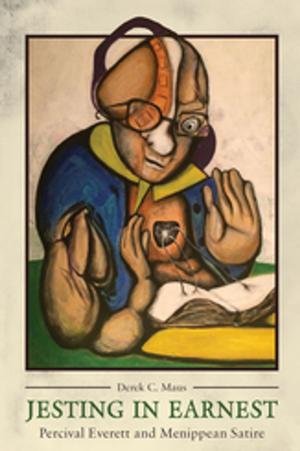The Origins of Southern Evangelicalism
Religious Revivalism in the South Carolina Lowcountry, 1670-1760
Nonfiction, Religion & Spirituality, Christianity, Evangelism| Author: | Thomas Little | ISBN: | 9781611172751 |
| Publisher: | University of South Carolina Press | Publication: | October 15, 2013 |
| Imprint: | University of South Carolina Press | Language: | English |
| Author: | Thomas Little |
| ISBN: | 9781611172751 |
| Publisher: | University of South Carolina Press |
| Publication: | October 15, 2013 |
| Imprint: | University of South Carolina Press |
| Language: | English |
During the late seventeenth century, a heterogeneous mixture of Protestant settlers made their way to the South Carolina lowcountry from both the Old World and elsewhere in the New. Representing a hodgepodge of European religious traditions, they shaped the foundations of a new and distinct plantation society in the British-Atlantic world. The Lords Proprietors of Carolina made vigorous efforts to recruit Nonconformists to their overseas colony by granting settlers considerable freedom of religion and liberty of conscience. Codified in the Fundamental Constitutions of Carolina, this toleration ultimately attracted a substantial number of settlers of many varying Christian denominations. In The Origins of Southern Evangelicalism, Thomas J. Little refutes commonplace beliefs that South Carolina grew spiritually lethargic and indifferent to religion in the colonial era. Little argues that pluralism engendered religious renewal and revival, which developed further after Anglicans in the colony secured legal establishment for their church. The Carolina colony emerged at the fulcrum of an international Protestant awakening that embraced a more emotional, individualistic religious experience and helped to create a transatlantic evangelical movement in the mid–eighteenth century. Offering new perspectives on both early American history and the religious history of the colonial South, The Origins of Southern Evangelicalism charts the regional spread of early evangelicalism in the too-often-neglected South Carolina lowcountry—the economic and cultural center of the lower Southern colonies. Although evangelical Christianity has long been and continues to be the dominant religion of the American South, historians have traditionally described it as a comparatively late-flowering development. Reconstructing the history of religious revivalism in the lowcountry and placing the subject firmly within an Atlantic world context, Little demonstrates that evangelical Christianity had much earlier beginnings in prerevolutionary Southern society than historians have traditionally recognized.
During the late seventeenth century, a heterogeneous mixture of Protestant settlers made their way to the South Carolina lowcountry from both the Old World and elsewhere in the New. Representing a hodgepodge of European religious traditions, they shaped the foundations of a new and distinct plantation society in the British-Atlantic world. The Lords Proprietors of Carolina made vigorous efforts to recruit Nonconformists to their overseas colony by granting settlers considerable freedom of religion and liberty of conscience. Codified in the Fundamental Constitutions of Carolina, this toleration ultimately attracted a substantial number of settlers of many varying Christian denominations. In The Origins of Southern Evangelicalism, Thomas J. Little refutes commonplace beliefs that South Carolina grew spiritually lethargic and indifferent to religion in the colonial era. Little argues that pluralism engendered religious renewal and revival, which developed further after Anglicans in the colony secured legal establishment for their church. The Carolina colony emerged at the fulcrum of an international Protestant awakening that embraced a more emotional, individualistic religious experience and helped to create a transatlantic evangelical movement in the mid–eighteenth century. Offering new perspectives on both early American history and the religious history of the colonial South, The Origins of Southern Evangelicalism charts the regional spread of early evangelicalism in the too-often-neglected South Carolina lowcountry—the economic and cultural center of the lower Southern colonies. Although evangelical Christianity has long been and continues to be the dominant religion of the American South, historians have traditionally described it as a comparatively late-flowering development. Reconstructing the history of religious revivalism in the lowcountry and placing the subject firmly within an Atlantic world context, Little demonstrates that evangelical Christianity had much earlier beginnings in prerevolutionary Southern society than historians have traditionally recognized.















